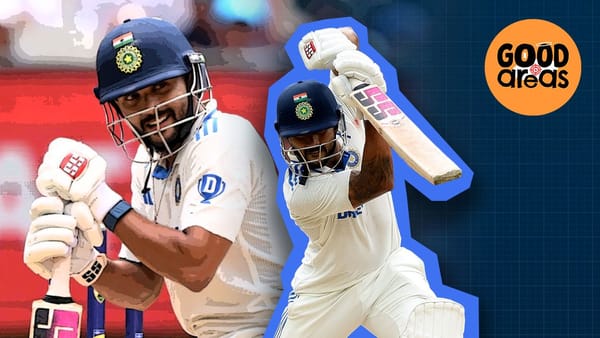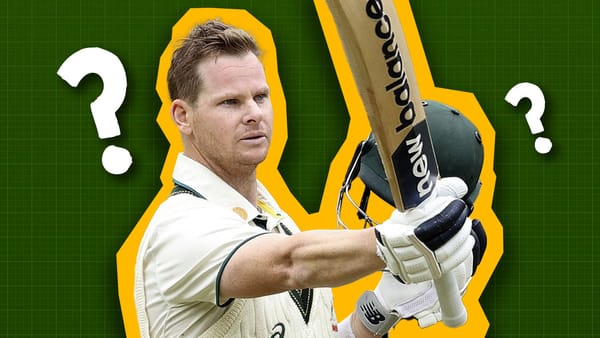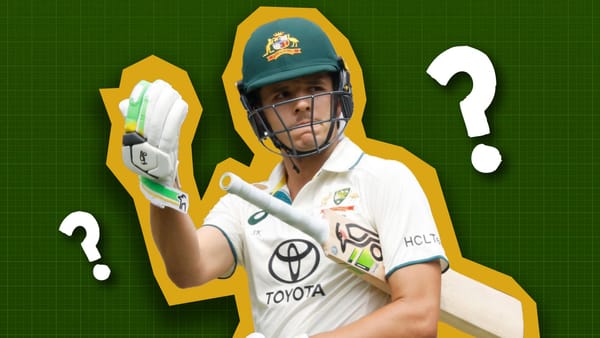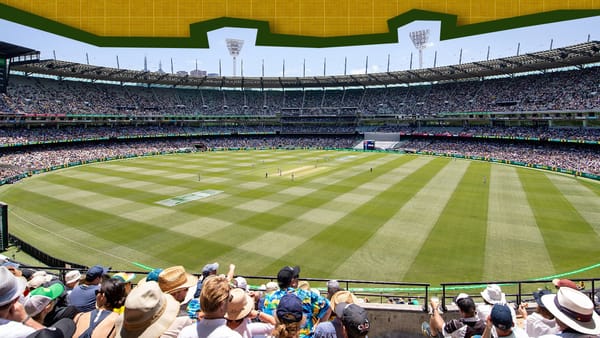The great pause
How COVID might help some teams get better
One of my greatest lessons on the sporting field was the day after I got hit for two sixes.
The first six was hit from a straight full ball that was flighted with my ordinary leg-spin. A left-hander ran at it, reached it on the full and swung over deep mid-wicket. It didn’t go that far, and 30 seconds later, I was ready to bowl. To show I wasn't intimidated I tossed the ball up again, and he ran screaming down the wicket and smashed it even further over deep mid-wicket. This time we lost the ball for a while.
The embarrassment was intense. The batsman was preening, and you're shuffling your feet, trying to look busy while being aware everyone is looking at you. On this occasion, there was a near three-minute gap. And after wondering if I should leave the ground and never come back, I thought about how to get this guy out. I honestly don't know what ball would have come next to me if the ball was easy to find. But with a few minutes to think, everything suddenly became clear. He was coming to come down the wicket and whack me over mid-wicket no matter what I bowled. So the ideal ball would be a wide wrong'un. Either he'd miss it, or struggle to reach it.
Luckily for me, he ran past the ball, and the keeper completed it.
This wasn't a one-off, I had an incredible ability as a captain, or a bowler, to get out a player the second time I played them. Often after they'd smashed me or our team the first game. My problem was I struggled with this in real-time. That six just gave me a moment.
It's a bit reductionist to put all athletes into three categories, but many inside sport do. The three types are those who don't think but do, those who get lost in overthinking, and those in the middle, who sometimes think and sometimes just act.
It was always clear I was in the overthinking group.
But the thinking wasn't bad; it's that I couldn't stop. From the moment I bowled the ball, I had this constant action in my head. LIke ten people were screaming ideas at me, I couldn’t make them stop, so I’d rush through to my next ball, often before the batsman was ready. And not all the thoughts were good, such was my hurry, I would forget which foot my run-up would start with. From there instead of relaxing into my run I'd worry if my stride pattern was right. Every movement of my body - cocking my wrist, front arm placement, how my foot landed - would be examined; nothing was natural. Meaning my deliveries were mostly panicked as the crease suddenly arrived in front of me. I needed breaks.

With the Covid gap, I've been thinking about how this might affect pro teams. Especially the NBA, where you play almost every second day, and then suddenly, you have this huge break mid-season as you approach the finals.
There are some interesting teams in the NBA that would never have won had the season continued as normal. The two I've been following are the Philadelphia 76ers and the Denver Nuggets, intriguing yet flawed teams. Going up against the three teams most likely to win, the two from Los Angeles and Milwaukee, after a full season, they wouldn't have won. Coming back from the break their odds have them as the seventh and eighth most likely to win.
But now they've been sitting on the grass for a few months.
Denver - mainly because of not all their players being in the bio-dome - have been playing with rotations that include three seven-footers, and two guys around six foot eight. This is only because of who is available, and because these matches don’t matter. Their most inexperienced player Bol Bol - who you may remember I have been near stalking - played his first NBA game (well practise at least) as a small forward. Denver didn't think he'd play this year, and no one assumed it would be at this position being that he is 7 foot 2 with a wingspan of 7-9. But the break has allowed them to just throw him the ball, and when they did, it was at a position that makes their line up very hard to match up against. They could use this in the playoffs and teams won’t have faced anything like it.
Philadelphia had already gone big in the offseason, also with three players around seven foot tall in their starting five. But it hadn't worked all year long. They had the individual talent, but not all the pieces fit together. For much of the year, they had tried to make things work, changing their line ups on a near-weekly basis, putting Al Horford and his 109 million dollar contract on the bench. But you could see they were - as gamblers put it - chasing. Now they have come back, and Horford will remain on the bench. In his place they'll use Shake Milton as their primary ball-handler, his contract is over 100 million less than Horford. Milton has 52 (a regular season is 82) games of NBA basketball spaced out over two seasons, and averaged 7.5 points a game in them. But, Philly has been hitting the video and analytics hard, looking for combinations that work. And Milton will be in their starting five at arguably the most critical spot when the lights come back on.
Now I've worked with teams, and people often ask what the hardest part is. They go for dealing with big-name stars, coming up against orthodox thinking, and fitting in as a journalist more often than not. But it is almost always time. In the season everything moves so quickly. There are games, travel, meetings, training and downtime (if you're lucky) and you end up in this blur. And the most sensible moves to make to strengthen your team might even be made, but you still lose the next game, so you abandon them. You come up with the perfect strategy, and a player eats a dodgy meal so you're retooling on the fly and you forget about it. You give a strong role definition to a player, and then someone gets suspended, so you change what they do until they're almost ruined. There is little time to go, wait, we did this, and it should have worked, why didn't we stick with it because seven other fires are burning.
The NBA and many sports outside of cricket probably set this up better. As a cricket analyst, I'm usually on my own at looking at stuff. But even in the biggest premier league clubs or NFL teams, there is never enough time to do the job as you would like. Now so many teams and athletes had nothing but time and often short seasons where they can try novel concepts or confuse teams who don't have enough time to work them out.
Thinking back to my unsuccessful club cricket career, I think if I had four months off between each ball; I would have been at least 5% better. Now that wouldn't have changed my life, but for major teams, it just might. Sadly for me, sport, like life, comes at you pretty fast.
A few days back I did a radio show on Stuart Broad with Steve Harmison, Harry Gurney, Matt Prior and Darren Gough. You can listen here.




